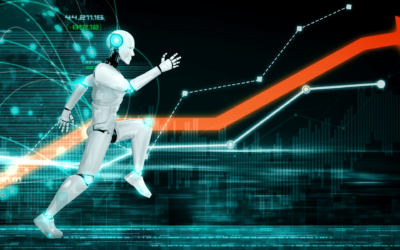Over the past few years, Artificial Intelligence (AI) has evolved rapidly to become part of our everyday lives. Businesses around the world have realized that using AI in their day-to-day processes can make them more efficient and therefore more competitive, so they started to focus on this area.
The idea of automation goes way back in time. In the age of industrialization, machines and assembly lines had already started to increase productivity through automation, and since then routine tasks have been increasingly automated. There have always been people who have worried about their jobs, and indeed there are many jobs that no longer exist. Today, the tertiary sector of the economy is the most dominant in Western countries.
Nevertheless, the increasing use of AI raises the question of whether AI will replace individual workers, which is why many people are critical of the issue. One of the sectors expected to become increasingly automated is finance. In particular, accounting and data analysis offer a huge potential for AI, as AI software is very advanced in scanning and analyzing large amounts of data in a very short time. This does not mean simply replacing human labor with technology. Instead, companies should focus on meaningful and efficient collaboration between human employees and AI. To do this, it is important that the people working with AI software understand at least the basics of how it works and what it does. If this is not the case, there may be issues around accountability – who is responsible for the AI if no one understands what it is doing? It is therefore advisable to invest some time in trying to understand the software that is being used to automate certain processes, especially in the sensitive area of finance.
Simple finance processes automation with Nobel RPA
In general, AI software is very complicated and even experts struggle to understand the process. AI uses machine learning and can improve and learn from mistakes. In the context of sensitive, financial data, the responsibility cannot simply be transferred to AI, so accountants in particular need to understand how it works.
But not all software is difficult to understand: Nobel RPA is the perfect example of how automating financial processes can be very simple and doesn’t require many technical skills. Using Nobel RPA, invoices can be processed automatically, allowing accountants to focus on more demanding, higher value tasks. To mention some examples, accountants could use the time to optimize costs for the company or to improve the cash flow management.
Automation does not mean replacing human labor, but rather supporting and increasing efficiency. The software serves as a tool that can be easily implemented into the day-to-day business, rather than changing the entire organizational structure. There is no risk of AI taking over your job, the software simply frees up your time for other tasks.



